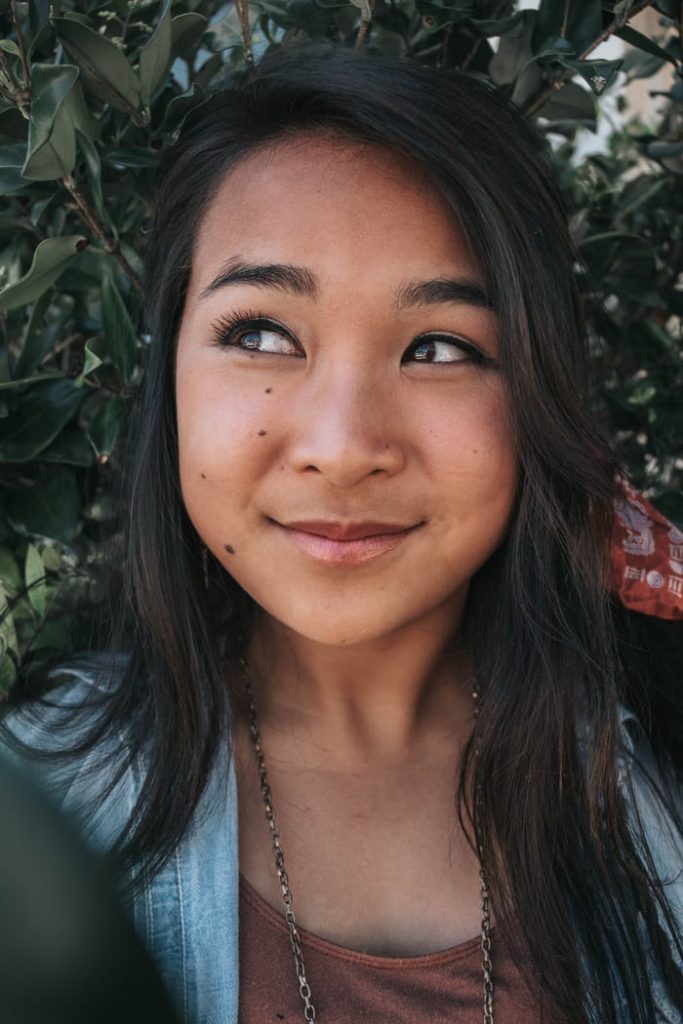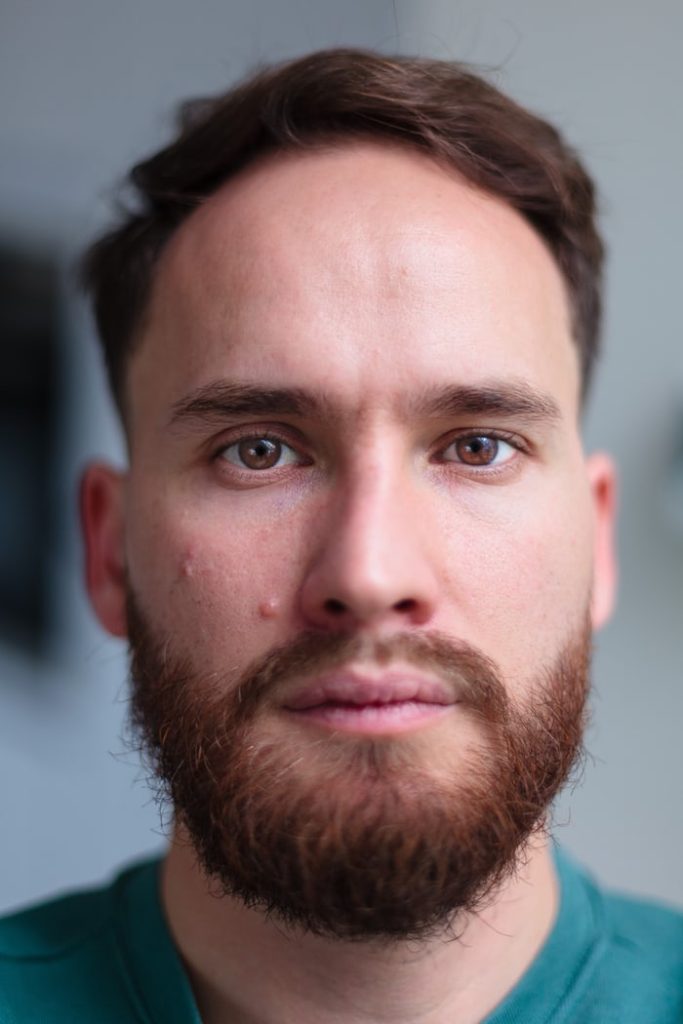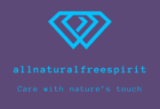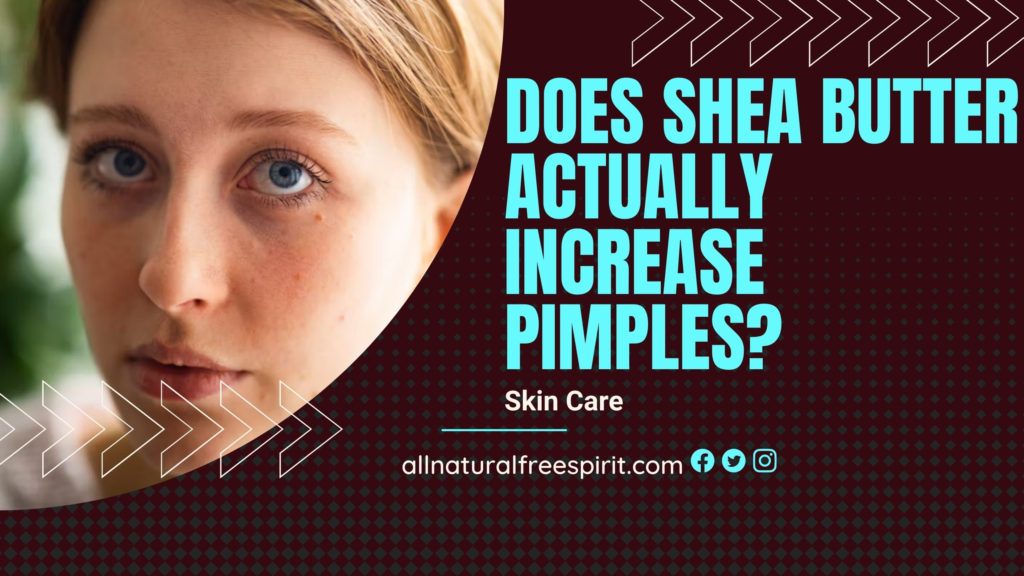Do you have a problem with acne? Is your skin constantly breaking out in pimples, and does shea butter seem like something that could be the answer?
If so, continue reading this blog post to see if it’s worth it. This post will discuss what happens when you use shea butter on your face and whether or not shea butter actually increases pimples.
What does shea butter do to your skin? Does it really help with pimples, or does it negatively affect your face?
Shea butter is a common ingredient in many beauty products, such as makeup and moisturizers. It does wonders for your skin, does Shea butter actually increase pimples?
Overview: Shea Butter

Shea butter is a natural product that has been used for centuries to treat dry skin, soothe acne, and reduce the appearance of scars.
Shea butter is made from the nuts of the Karite tree, which is found in tropical regions around the world.
Studies have suggested that applying shea butter will help prevents skin dryness and increase elasticity, which allows your body to maintain moisture at optimal levels.
This helps prevent acne breakouts because it creates a barrier between bacteria and your face, so pimples don’t become infected.
It can also help soothe irritation and inflammation, making it a good choice for people with acne-prone skin.
Unfortunately, there are no studies that directly examine whether or not shea butter causes pimples. At this time, there’s no evidence to suggest shea butter will cause you to break out more often than before!
Read: Cocoa butter on stretch marks before and after
Does Shea Butter Actually Increase Pimples?

Shea butter has been used as a natural moisturizer and anti-inflammatory agent for centuries, but does it actually increase pimples?
The question “does shea butter increase pimples” is a popular one! The answer to this question does not have a straight yes or no answer.
There are rare occasions where shea butter can work against you and cause your skin to break and form more pimples.
1) Sensitive Face Skin
If your face is sensitive, you might want to avoid shea butter because it can cause a reaction in your skin.
While this isn’t the most common side effect of using shea butter, some people experience acne breakouts due to sensitivities that develop when using this product for prolonged periods.
If you find yourself breaking out after each application, it might be time to find a different face moisturizer.
2) Allergic Reaction
If you are allergic to nuts or nut oils, you should stay away from shea butter.
While most people who are allergic to nuts can still safely use shea butter, it is possible for your skin to become irritated and break out in a rash or hives.
If you have any doubts about whether or not you’re allergic to shea butter, it’s best to consult with a doctor before using it.
Read: How long does it take for cocoa butter to fade scars

3) Shea Butter is Thick
Shea butter is known for being a thick, waxy substance. If your skin is already oily, adding more shea butter to your routine might be the last thing you need.
Shea butter can make your skin feel even oilier, and it might lead to an increase in pimples and blackheads. If this is the case, you should try using a light moisturizer that won’t clog your pores.
Why You Should Consider Shea Butter to Stop Pimples
If your skin is not sensitive and you don’t struggle with breakouts, then shea butter is great for you! It can help keep your skin moisturized and looking healthy.
Shea butter also has antioxidant properties that have anti-aging effects. This means that it can help keep you looking young and fresh.
Read: Is cocoa butter good for face?
Benefits Of Using Shea Butter:
There are several benefits to using shea butter, especially when dealing with acne and pimples. They include :
1) Prevents Skin Dryness-
One of the leading causes of acne is when the skin becomes dry. Shea butter helps maintain moisture levels at optimal levels, preventing the skin from becoming dry and irritated. This leads to a reduction in acne breakouts.
2) Reduces Appearance of Scars-
Shea butter is known for its ability to reduce the appearance of scars. If you have any old scars that you want to get rid of, shea butter can help!
3) Anti-Inflammatory Agent-
Shea Butter is also an anti-inflammatory agent, which means it can help soothe and calm inflamed skin. This is great for people who have acne because it can help to reduce the redness and irritation that often comes with breakouts.
4) Prevents Sun Damage-
Shea butter also has sunscreen properties, which can help prevent sun damage. This is important because sun damage can lead to premature aging and an increase in wrinkles.
5) Reduces Appearance of Fine Lines-
Shea butter is also known to reduce the appearance of fine lines and wrinkles. Shea butter is a great option if you want to keep your skin looking young and fresh!

Frequently Asked Questions about Shea Butter and Pimples
Is shea butter comedogenic?
There is some debate over whether or not shea butter is comedogenic. Some people say that it can cause acne breakouts, while others claim it is non-comedogenic. If you are worried about whether or not shea butter will cause you to break out, it’s best to try it out and see how your skin reacts.
Does Shea Butter Help With Breakouts?
Yes, shea butter can help reduce the appearance of breakouts. It is a great moisturizer for oily skin, and it has anti-inflammatory properties that can help soothe inflamed skin.
Why Does Shea Butter Cause Breakouts?
Shea butter is made from a nut, which can cause allergic reactions in some people. If you notice that your skin becomes irritated and starts to break out, it might be time to find a different face moisturizer.
So, does shea butter increase pimples? There is no definitive answer to this question as it largely depends on the individual.
Some people find that their skin breaks and form more pimples when they start using shea butter, while others see positive results in terms of fewer pimples and blackheads.
If you’re unsure whether or not shea butter will work well for you, it’s best to start out by using it sparingly and seeing how your skin reacts.
If you experience any negative side effects like excessive oiliness, breakouts, or an allergic reaction, it might be best to stop using shea butter altogether.

